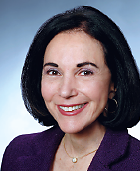Are You Too Busy to Vote?

An article in the July 17 Washington Post titled “Why Don’t Americans Vote? We’re Too Busy” pointed out that in the midterm elections only 36 percent of eligible voters cast ballots and that this was the worst turnout since 1942. The Census Bureau asked nonvoters why they didn’t vote. Reasons included being too busy, apathy, and feeling that their vote wouldn’t matter.
The American Psychiatric Association has an even worse record. In 2015, out of 30,450 eligible voters, only 21.35 percent voted, an increase over the previous three years, but down from 31 percent in 2010. Our voting numbers have been trending downward for some time now. In fact, the last time an APA election had a voter turnout of over 50 percent was 1986.
Why don’t psychiatrists vote? Perhaps the reasons are similar to why most Americans don’t vote. Are we really too busy? This is not a valid excuse because the process for voting has been simplified. We have largely phased out paper ballots that need to be returned by mail in favor of an online voting system. It’s as simple as clicking a link to the election page in an email and making your choice. In the 2015 election, 88 percent of APA voters opted to use this simpler, online system.
Are psychiatrists apathetic? When I attend APA meetings such as those of the district branches, APA Assembly, APA components ,and APA annual meeting, I can tell that our members are definitely not apathetic. Our members care passionately about our patients and about our profession.
Do we feel that our votes don’t count? With so few people voting in each election, every vote definitely counts! As Larry Sabato said in his 2011 book Pendulum Swing about the 2010 elections, “Every election is determined by the people who show up.”
Perhaps, with regard to APA, many of us feel that all of the candidates are similar. I think that this is partially true as reflected in the candidates’ statements on their web pages. For example, no one could get elected to APA office if he or she were against parity or supported psychologists gaining privileges to practice medicine.
However, there are differences among candidates. Although all are extremely qualified, each may represent slightly different interests based on their backgrounds. Whom do you want as your voice on the Board of Trustees and as your spokesperson to the outside world? If you care about diversity, in terms of type of practice, specialty, geography, age, gender, sexual orientation, race, ethnicity, you need to make your voice known. Do you want officers who are in private practice, integrated settings, academic institutions, or the public sector? Each Board of Trustees tends to emphasize different issues.
All of the candidates have web pages and contact information. All APA members should ask the candidates about issues that they care about. For example, how do they feel about the maintenance of certification requirements? Are they passionate about research funding? Are they advocates for psychotherapy? What will they do to further help international medical graduates? How will they encourage involvement of resident-fellow members and early career psychiatrists?
There have been proposals through the years to have uncontested elections. The American Academy of Psychiatry and the Law (AAPL) does this. The nominating committee of AAPL discusses who is the most qualified person to hold each office, and the slate is presented to the membership at an open business meeting. Although any member can nominate candidates from the floor, this almost never happens. The APA membership has never supported this type of election. Whenever this comes up for discussion, we support a contested election so that members have choices.
Franklin Delano Roosevelt said, “Nobody will ever deprive the American people of the right to vote except the American people themselves, and the only way they could do that is by not voting.”
I would paraphrase this quote to say that no one wants to deprive APA members of the right to vote in contested elections. However, unless we do vote, we are depriving ourselves!
I encourage everyone to find out about the candidates, think about who will best represent the interests of our profession and patients, and take the time out of our busy schedules to vote in APA’s 2016 election! ■



